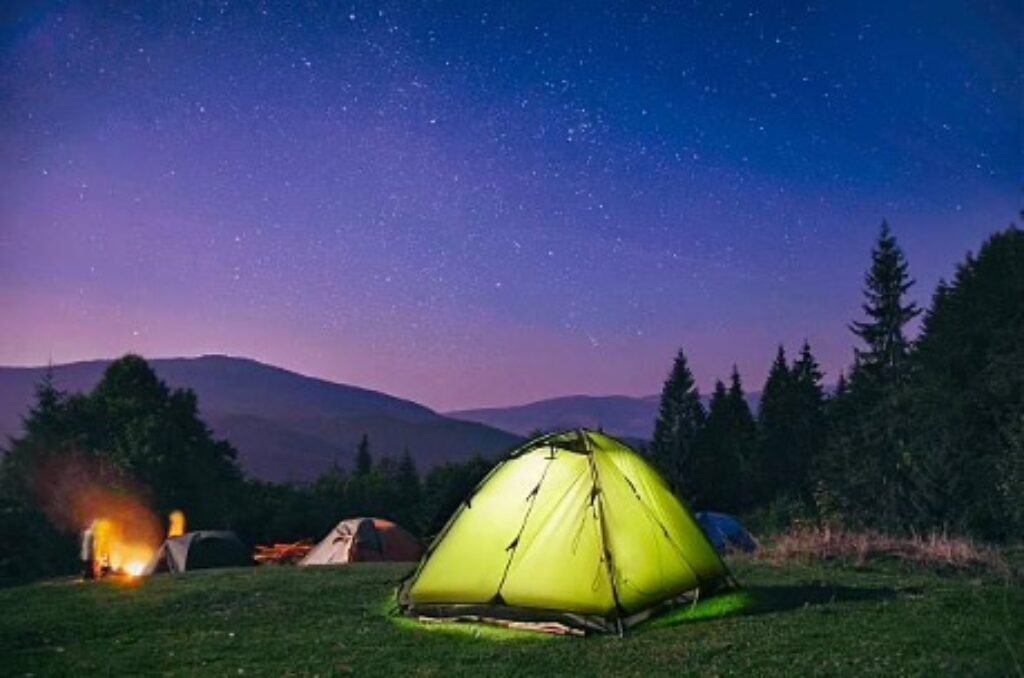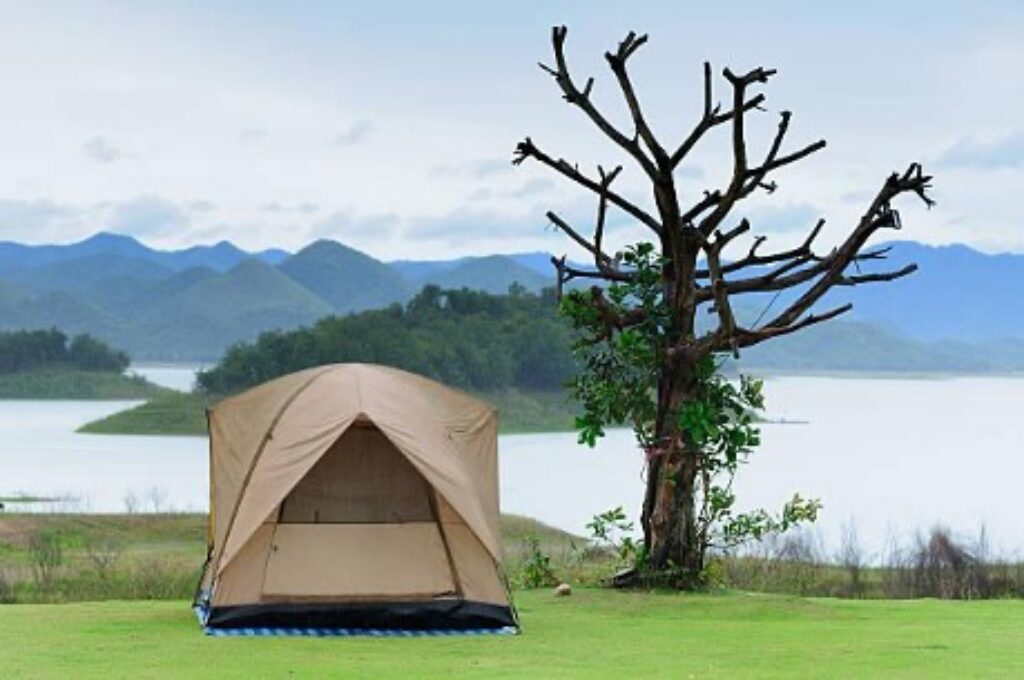
Going camping under the stars for the first time is an exciting adventure, but being prepared is essential. There are vital things every new tent camper needs to know beforehand to ensure a pleasant and memorable trip.
Preparing wisely starts with researching gear, routes, and campsite rules. Learning proper equipment use, cooking techniques, and outdoor safety creates familiarity and comfort for a stress-free nature getaway.
This article covers seven essential things you must know before packing up for your initial venture into the wonderful world of camping outdoors.

1. Packing Properly
Careful packing is vital. Of course, bring the basics – a tent, a sleeping bag, and warm layers. But don’t forget little extras that make a big difference, like a comfortable camping table and chairs.
These will provide you with a spot to relax, eat meals comfortably, and enjoy time away from your tent. Be sure also to pack a complete first aid kit with supplies to treat minor injuries.
You’ll also want to consider items like a camp stove for cooking versus relying on campfires. Plan to pack light while still having everything required for fun and safety. The less weight to haul, the more enjoyable your trip will be!
2. Picking the Perfect Pitch
Selecting a lovely locale goes a long way in determining how much you enjoy your trip. Opt for lightly populated campgrounds that allow suitable spacing between tents.
Inspect potential pitches for level ground, accessibility, and freedom from hazards like low-lying areas prone to flooding. Ensure the site provides essential amenities like fire pits, clean bathrooms, and drinkable water taps before reserving.
Also, consider how far pitches are from parking – remote spots may not be ideal for a novice hauling heavy gear. With careful planning, you can pick a pleasant place suited to your needs.

3. Mastering Tent Assembly
Erecting your tent for the first time takes practice. Study the instructions at home before your getaway and practice setup repeatedly until you’ve got it down.
Remember that tent sites may not be perfectly flat and level, so look for a patch of ground without debris, rocks, or unevenness underneath your chosen pitch.
Once on location, take your time securely staking down the fly sheet and guylines to prevent collapse during wind or rain. Be sure to leave ample space between your tent, camping table, and chairs to allow for ventilation and movement in wet weather.
Learning how to pitch it just right from the start prevents stress later on when you’re tired from travel.
4. Camp Cooking Know-How
Knowing how to prepare and enjoy your meals outdoors is vital. Camp stoves are cleaner-burning and more convenient than open fires, which aren’t always permitted anyhow.
Pack necessary cookware and dinnerware for easy meals. Delectable campfire cuisine adds to the experience but requires harder-to-control cooking methods. Pack light stove-top fare like mountain pies, trail mix, or one-pot meals for carefree enjoyment.
Ensure to store all food in a bear-resistant container safely or hang a bag during the evening to avoid four-legged freeloaders. Maintain cleanliness by packing out all garbage, scraps, and dishes for disposal back home.

5. Mind Your Manners at the Campground
Besides basic etiquette like leashing pets and following quiet hours, there are courtesies unique to camping. Avoid loud music or noise whenever possible so you don’t disturb your peaceful, nature-loving neighbors.
Use designed bathing facilities instead of lakes and rivers. Pitch a tidy site, not leaving behind scraps or damage to trees. With care and consideration, you can truly appreciate the solace of camping while keeping others happy, too. Respect and care for these wild spaces are what ensure a welcome return.

6. Be Prepared for Anything
Camping offers immense physical and mental benefits. However, when you’re close to Mother Nature, prepare for surprises like changing weather or minor injuries. Pack suitable outerwear and rain gear in case conditions turn.
With portable basics like a first aid kit, a map of the area, and emergency rations, you’ll feel ready for anything from a scrape or sprain to getting turned around on a hike.
Consider storing maps and critical supplies in water-resistant containers. Let someone know your planned route and itinerary in case you need emergency assistance.
Extra steps like downloading smartphone maps can safely guide return in a pinch.
7. Don’t Forget the Little Necessities
Small, easily forgotten items like toiletries, tissues, or sun protection can make or break your trip. Build a checklist of essentials and double-check check you have them prior to leaving home.
Carry roadside safety gear like jumper cables, flares, or a hazard triangle in case minor vehicle troubles occur. For peace of mind, pack a portable phone charger to keep devices powered up in case battery life runs low.
Most importantly, keep your camping spirit positive – there are amazing experiences awaiting just outside your tent!

Conclusion
Being prepared with the right gear, food, safety items, basic camping skills, and etiquette knowledge will help ensure an enjoyable first tent camping trip.
Remember that the natural setting provides challenges different than everyday life, so allow flexibility in your plans. Following these tips will help you make the most of being outdoors under the stars.
Smoother setup, cooking, and campsite navigation start with doing your homework before heading into the wilderness. Happy camping!





